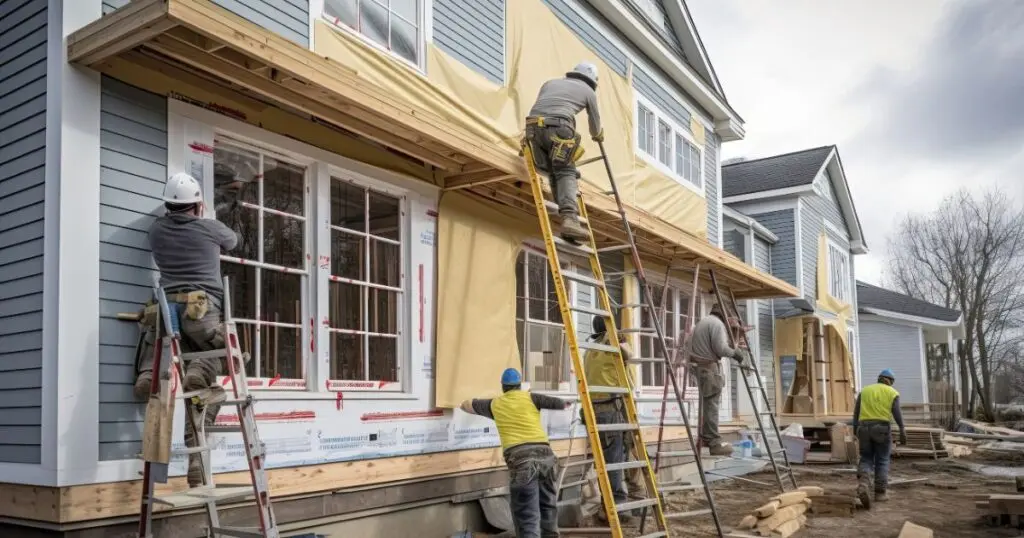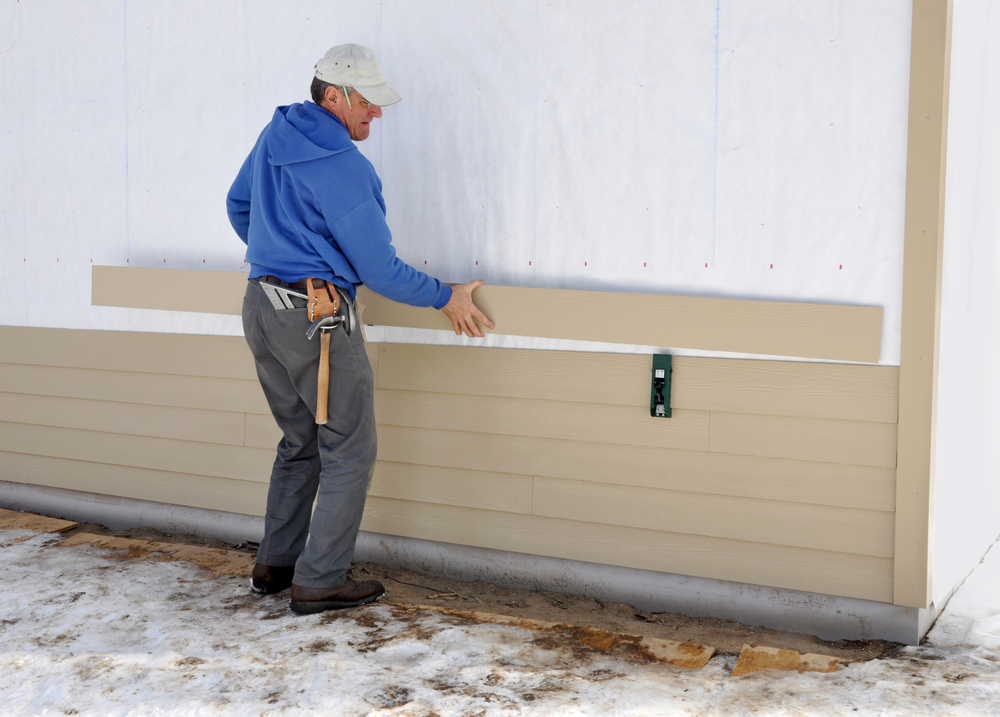Local Morris Siding Contractor for Efficient and Affordable Siding Solutions
Local Morris Siding Contractor for Efficient and Affordable Siding Solutions
Blog Article
The Necessary Guide to the Numerous Kinds Of Home Siding and Their Distinct Advantages
In the realm of home renovation, picking the right home siding is a crucial decision that influences both aesthetic allure and useful performance. With so many choices to take into consideration, which siding material really stands out for your specific job?
Timber Home Siding
Timber house siding, a preferred choice for residential outsides, supplies an ageless aesthetic that combines all-natural charm with architectural honesty. This home siding material is available in numerous styles, consisting of clapboard, tiles, and board-and-batten, enabling property owners to tailor their appearance to match their style preferences. Timber home siding is usually crafted from resilient varieties such as cedar, redwood, or want, which are known for their strength and capability to withstand ecological stressors.
Among the primary advantages of wood house siding is its outstanding insulation residential properties, which can add to power efficiency and reduced home heating expenses. In addition, wood house siding is biodegradable, making it an eco friendly alternative when sourced sustainably. Regular maintenance, consisting of painting or discoloration, can prolong its life expectancy and enhance its appearance, permitting property owners to maintain the natural appeal of the timber.
However, prospective downsides include vulnerability to parasites, rot, and weather damages, demanding appropriate therapy and maintenance - morris siding contractor. In spite of these problems, when properly taken care of, timber siding can offer a attractive and durable solution that improves the character of a home while offering a cozy, inviting ambience

Vinyl Exterior Siding
Vinyl house siding has actually arised as a leading choice for homeowners looking for a low-maintenance exterior alternative that incorporates sturdiness and cost. This flexible material is crafted from polyvinyl chloride (PVC), making it resistant to various weather, consisting of wetness and UV rays. As an outcome, vinyl house siding does not warp, rot, or fade, making sure long-lasting aesthetic allure.
One of the key benefits of vinyl house siding is its comprehensive series of designs and colors, permitting property owners to attain the desired try to find their residential or commercial property without the demand for frequent repainting. Furthermore, plastic siding is simple to mount, which can considerably minimize labor prices during building or improvement projects.
Vinyl home siding additionally contributes to energy effectiveness. Several alternatives feature insulation backing, which improves thermal efficiency, aiding to keep comfortable indoor temperatures and potentially reducing power costs. Furthermore, its smooth surface facilitates easy cleaning, needing only regular washing with a garden hose pipe to eliminate dirt and debris.
Fiber Cement Siding
Fiber cement siding has actually obtained grip amongst home owners and builders alike due to its amazing combination of sturdiness and visual adaptability. Composed of a mix of cement, sand, and cellulose fibers, this house siding alternative is crafted to hold up against extreme climate problems, including high winds, hefty rainfall, and temperature changes, making it a resilient choice for household outsides.

One of the main advantages of fiber concrete house siding is its resistance to insects, such as termites, and its non-combustible nature, offering boosted fire security. morris siding contractor. In addition, it is offered in a wide variety of styles, shades, and appearances, allowing house owners to achieve their preferred visual without sacrificing performance
An additional benefit is its low upkeep needs; fiber cement home siding typically needs paint or discoloration every 5-10 years, which is less frequent than various other products. Furthermore, its longevity contributes to a reduced total cost of ownership, as it minimizes the demand for frequent repair work or replacements.
Eventually, fiber cement house siding stands for an excellent investment for those seeking a durable, appealing, and functional outside alternative, combining both form and function to improve the home's visual allure.
Steel Home Siding
The attraction of steel house siding exists in its durable durability and modern aesthetic charm, making it a preferred selection for modern style. Available in materials such as light weight aluminum and steel, steel siding provides a series of shades and coatings, allowing property owners to accomplish a personalized look that complements their design vision.

Power efficiency is another considerable benefit, as many metal exterior siding products are developed with insulation choices that assist manage interior temperatures. This can result in decreased energy costs gradually. In addition, metal siding is frequently recyclable, making it an eco-friendly selection for sustainability-minded homeowners.
The installment procedure for steel home siding can be fairly uncomplicated, leading to a quicker turnaround time for building jobs. On the whole, metal house siding incorporates performance and style, making it a practical choice for those seeking a enduring and aesthetically attractive exterior finish.
Block and Stone Exterior Siding
Block and additional hints rock exterior siding stands out as a classic option that enhances the visual appeal of any home. Recognized for their toughness and low maintenance, these products supply a phenomenal roi while elevating the residential property's visual appeal. Readily available in different shades, structures, and patterns, brick and stone can be tailored to fit diverse building styles, from standard to contemporary.
One of the key advantages of block and rock siding is their power efficiency. Both products have natural shielding buildings that help manage indoor temperature levels, possibly decreasing heating & cooling prices. In addition, they offer premium fire resistance contrasted to various other siding choices, adding to improved safety and security.
An additional advantage is their longevity. Block and rock can last for decades, commonly calling for very little maintenance past periodic cleansing. Unlike timber exterior siding, they are resistant to pests and rot, making sure a lasting exterior that holds up against the components.
Conclusion
In recap, the choice of exterior siding significantly influences a home's aesthetic allure, energy efficiency, and upkeep demands. Each kind of home siding-- whether wood, plastic, fiber brick, metal, or concrete and rock-- uses special benefits customized to different property owner preferences and environmental problems.
One of the primary benefits of timber exterior siding is its outstanding insulation buildings, which can contribute to power efficiency and lower home heating costs. Furthermore, timber siding is biodegradable, making it an ecologically pleasant option when sourced sustainably.One of the main advantages of steel exterior siding is its resistance to different ecological factors.Energy performance is another considerable benefit, as several metal exterior siding items are designed with useful reference insulation options that assist control interior temperature levels. Each type of exterior siding-- whether wood, plastic, fiber block, steel, or concrete and rock-- offers unique benefits tailored to different home owner choices and environmental conditions.
Report this page